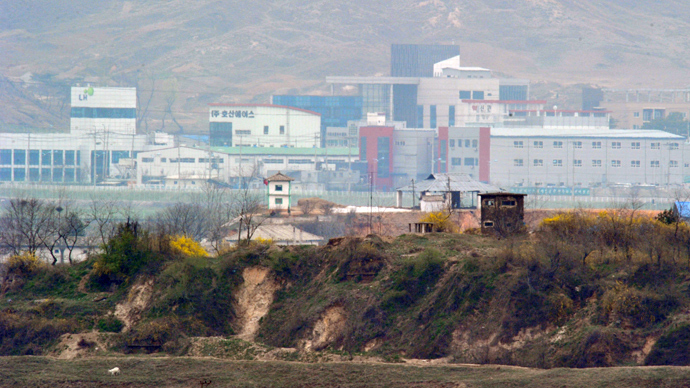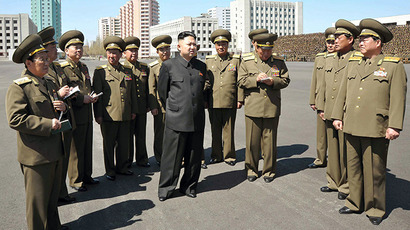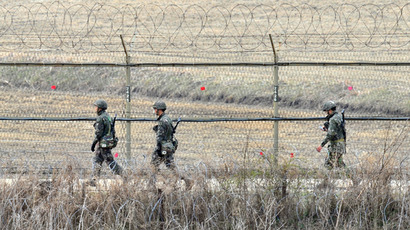N. Korea deploys improved artillery on border with South – report

North Korea has begun upgrading its artillery in frontline military units on the border with the South, deploying new guns able to engage targets deep within the neighboring state’s territory, South Korean media reports.
The North's military is replacing 107mm-caliber multiple rocket
launchers with the improved 240mm guns, Yonhap news agency
claims, referring to a government source.
"We are detecting signs that the North is deploying the improved
240mm-caliber multiple rocket launchers, and the signs are
showing up at some western and eastern front-line military
units," Yonhap quoted the source as saying.
The unnamed official expressed concern that the new ordnance
poses increased military threats to areas south of South Korea's
capital region, near the border with the North.
There’s little data on the military equipment produces by North
Korea, but according to Yonhap, the 240mm launcher has a range of
60km, while the improved version increases the range to 70km.
A Department of Defense report submitted to the US Congress on
May 2 indicated that the North has a total of 5,100 multiple
rocket launchers.
Pyongyang is believed to have deployed multiple rocket launchers
with 107mm, 122mm and 240mm calibers on the border with the
South.
Back in 2010, the North used it’s artillery to shell South
Korea’s Yeonpyeong Island, killing two soldiers and two
civilians.
The two Koreas technically remain ‘at war’ as the sides still
haven’t signed a peace treaty after the Korean War ended in 1953.
Tensions mounted on the Korean Peninsula earlier this year after
the North conducted new nuclear and missile tests.
Pyongyang threatened Seoul and the Washington with war and closed
off the joint industrial zone in Kaesong, following a new round
of international sanctions, but later expressed willingness to
negotiate.














